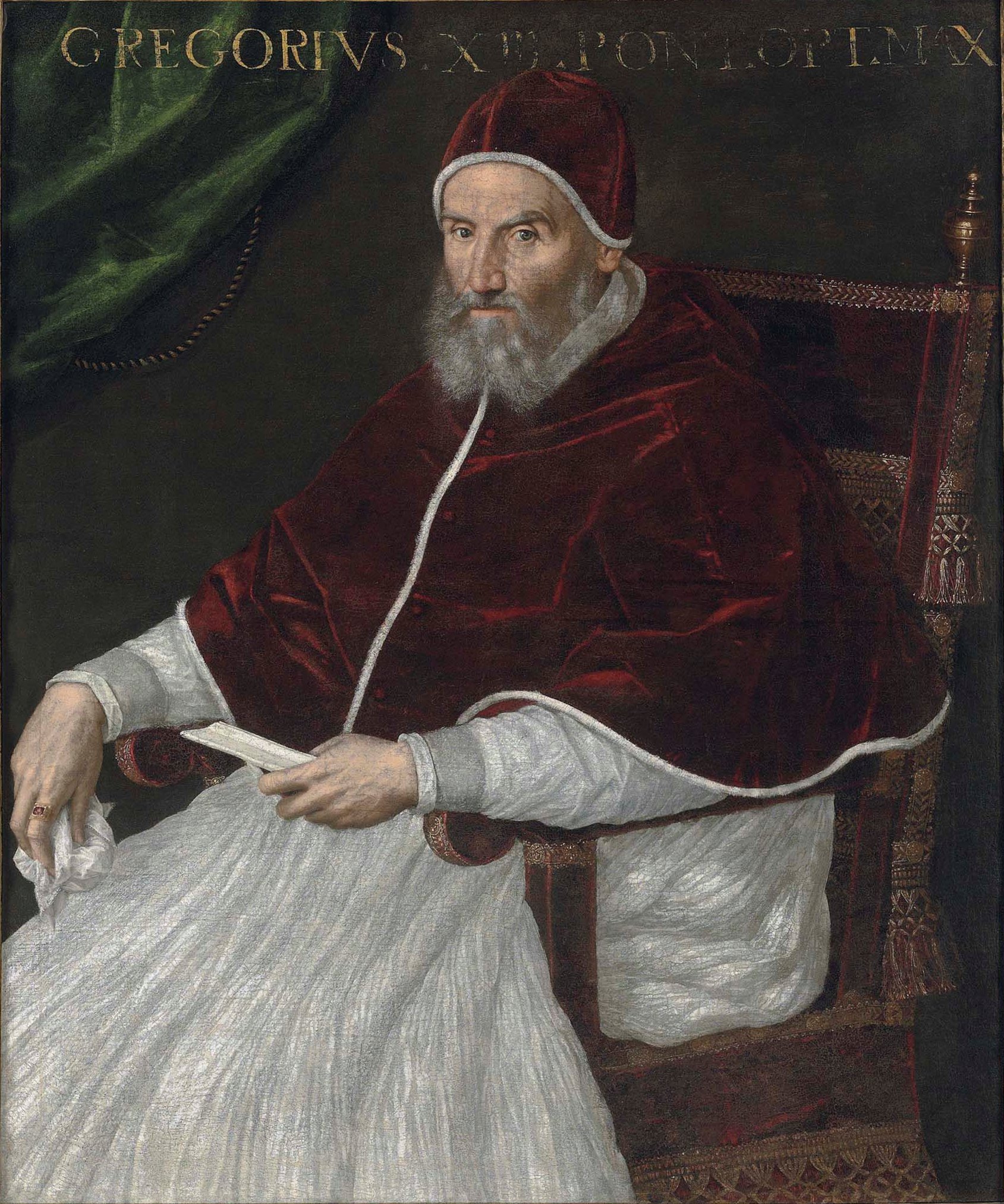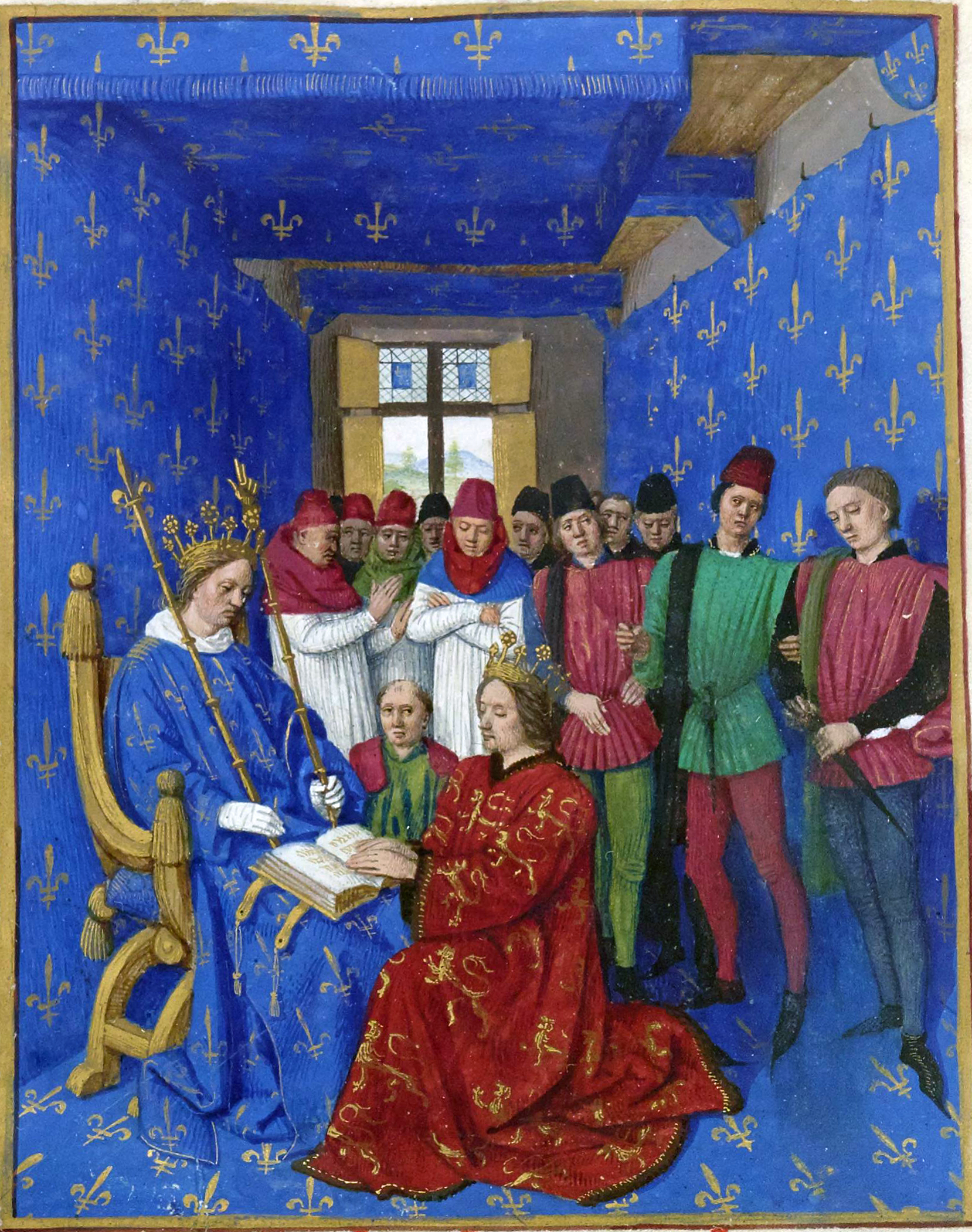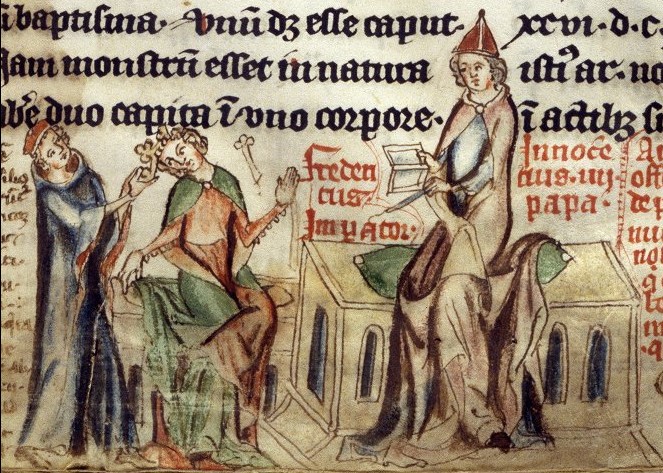|
Corpus Juris Canonici
The ''Corpus Juris Canonici'' ( lit. 'Body of Canon Law') is a collection of significant sources of the canon law of the Catholic Church that was applicable to the Latin Church. It was replaced by the 1917 Code of Canon Law which went into effect in 1918. The 1917 Code was later replaced by the 1983 Code of Canon Law, the codification of canon law currently in effect for the Latin Church. In 1990, Eastern Catholic canon law was codified in the Code of Canons of the Eastern Churches, which is currently in effect for the Eastern Catholic Churches. The ''Corpus juris canonici'' was used in canonical courts of the Catholic Church such as those in each diocese and in the courts of appeal at the Roman Curia such as the '' Roman Rota''. Definitions The term ''corpus juris canonici'' was used to denote the system of canonical law beginning in the thirteenth century. The term '' corpus'' (Latin for 'body') here denotes a collection of documents; ''corpus juris'', a collection of laws ... [...More Info...] [...Related Items...] OR: [Wikipedia] [Google] [Baidu] |
Literal Translation
Literal translation, direct translation or word-for-word translation, is a translation of a text done by translating each word separately, without looking at how the words are used together in a phrase or sentence. In translation theory, another term for "literal translation" is '' metaphrase'' (as opposed to '' paraphrase'' for an analogous translation). Literal translation leads to mistranslating of idioms, which is a serious problem for machine translation. The term as used in translation studies Usage The term "literal translation" often appeared in the titles of 19th-century English translations of classical, Bible and other texts. Cribs Word-for-word translations ("cribs," "ponies" or "trots") are sometimes prepared for a writer who is translating a work written in a language they do not know. For example, Robert Pinsky is reported to have used a literal translation in preparing his translation of Dante's '' Inferno'' (1994), as he does not know Italian. Similarly, ... [...More Info...] [...Related Items...] OR: [Wikipedia] [Google] [Baidu] |
Dionysius Exiguus
Dionysius Exiguus (Latin for "Dionysius the Humble", Greek: Διονύσιος; – ) was a 6th-century Eastern Roman monk born in Scythia Minor. He was a member of a community of Scythian monks concentrated in Tomis (present day Constanța, Romania), the major city of Scythia Minor. Dionysius is best known as the inventor of Anno Domini (AD) dating, which is used to number the years of both the Gregorian calendar and the (Christianised) Julian calendar. Almost all churches adopted his '' computus'' for the dates of Easter. From around the year 500 until his death, Dionysius lived in Rome. He translated 401 Church canons from Greek into Latin, including the Apostolic Canons and the decrees of the First Council of Nicaea, First Council of Constantinople, Council of Chalcedon, and Council of Sardica, and a collection of the decretals of the popes from Siricius to Anastasius II. These '' Collectiones canonum Dionysianae'' had great authority in the West, and they continue to ... [...More Info...] [...Related Items...] OR: [Wikipedia] [Google] [Baidu] |
Council Of Basle
The Council of Florence is the seventeenth ecumenical council recognized by the Catholic Church, held between 1431 and 1449. It was convoked as the Council of Basel by Pope Martin V shortly before his death in February 1431 and took place in the context of the Hussite Wars in Bohemia and the rise of the Ottoman Empire. At stake was the greater conflict between the conciliar movement and the principle of papal supremacy. The Council entered a second phase after Emperor Sigismund's death in 1437. Pope Eugene IV convoked a rival Council of Ferrara on 8 January 1438 and succeeded in drawing some of the Byzantine ambassadors who were in attendance at Basel to Italy. The remaining members of the Council of Basel first suspended him, declared him a heretic, and then in November 1439 elected an antipope, Felix V. After becoming the Council of Florence (having moved to avoid the plague in Ferrara), the Council concluded in 1445 after negotiating unions with the various easte ... [...More Info...] [...Related Items...] OR: [Wikipedia] [Google] [Baidu] |
Gregory XIII
Pope Gregory XIII ( la, Gregorius XIII; it, Gregorio XIII; 7 January 1502 – 10 April 1585), born Ugo Boncompagni, was head of the Catholic Church and ruler of the Papal States from 13 May 1572 to his death in April 1585. He is best known for commissioning and being the namesake for the Gregorian calendar, which remains the internationally accepted civil calendar to this day. Early biography Youth Ugo Boncompagni was born the son of Cristoforo Boncompagni (10 July 1470 – 1546) and of his wife Angela Marescalchi in Bologna, where he studied law and graduated in 1530. He later taught jurisprudence for some years, and his students included notable figures such as Cardinals Alexander Farnese, Reginald Pole and Charles Borromeo. He had an illegitimate son after an affair with Maddalena Fulchini, Giacomo Boncompagni, but before he took holy orders, making him the last Pope to have left issue. Career before papacy At the age of 36 he was summoned to Rome by Pope Paul III (1534 ... [...More Info...] [...Related Items...] OR: [Wikipedia] [Google] [Baidu] |
Extravagantes
The term ''Extravagantes'' (from the Latin ''extra'', outside; ''vagari'', to wander) is applied to the canon law of the Roman Catholic Church, to designate some papal decretals not contained in certain canonical collections which possess a special authority. More precisely, they are not found in Gratian's '' Decretum'' or the three official collections of the ''Corpus Juris Canonici'' (the ''Decretals of Gregory IX'', the ''Sixth Book of the Decretals'', and the '' Clementines''). History The term was first applied to those papal documents which Gratian had not inserted in his "Decree" (about 1140), but which, however, were binding upon the whole Church, also to other decretals of a later date, and possessed of the same authority. Bernardus Papiensis designated under the name of "Breviarium Extravagantium", or Digest of the "Extravagantes", the collection of papal documents which he compiled between 1187 and 1191. Even the Decretals of Gregory IX (published 1234) were long known ... [...More Info...] [...Related Items...] OR: [Wikipedia] [Google] [Baidu] |
Clement V
Pope Clement V ( la, Clemens Quintus; c. 1264 – 20 April 1314), born Raymond Bertrand de Got (also occasionally spelled ''de Guoth'' and ''de Goth''), was head of the Catholic Church and ruler of the Papal States from 5 June 1305 to his death in April 1314. He is remembered for suppressing the order of the Knights Templar and allowing the execution of many of its members. Pope Clement V was the pope who moved the Papacy from Rome to Avignon, ushering in the period known as the Avignon Papacy. Early career Raymond Bertrand was born in Vilandraut, Aquitaine, the son of Bérard, Lord of Villandraut. Bertrand studied the arts at Toulouse and canon and civil law at Orléans and Bologna. He became canon and sacristan of the Cathedral of Saint-André in Bordeaux, then vicar-general to his brother Bérard de Got, the Archbishop of Lyon, who in 1294 was created Cardinal-Bishop of Albano and papal legate to France. He was then made Bishop of St-Bertrand-de-Comminges, the cathedral ... [...More Info...] [...Related Items...] OR: [Wikipedia] [Google] [Baidu] |
Boniface VIII
Pope Boniface VIII ( la, Bonifatius PP. VIII; born Benedetto Caetani, c. 1230 – 11 October 1303) was the head of the Catholic Church and ruler of the Papal States from 24 December 1294 to his death in 1303. The Caetani family was of baronial origin, with connections to the papacy. He succeeded Pope Celestine V, who had abdicated from the papal throne. Boniface spent his early career abroad in diplomatic roles. Boniface VIII put forward some of the strongest claims of any pope to temporal as well as spiritual power. He involved himself often with foreign affairs, including in France, Sicily, Italy and the First War of Scottish Independence. These views, and his chronic intervention in "temporal" affairs, led to many bitter quarrels with Albert I of Germany, Philip IV of France, and Dante Alighieri, who placed the pope in the Eighth Circle of Hell in his ''Divine Comedy'', among the simoniacs. Boniface systematized canon law by collecting it in a new volume, the ''Liber Sextus ... [...More Info...] [...Related Items...] OR: [Wikipedia] [Google] [Baidu] |
Gregory IX
Pope Gregory IX ( la, Gregorius IX; born Ugolino di Conti; c. 1145 or before 1170 – 22 August 1241) was head of the Catholic Church and ruler of the Papal States from 19 March 1227 until his death in 1241. He is known for issuing the '' Decretales'' and instituting the Papal Inquisition, in response to the failures of the episcopal inquisitions established during the time of Pope Lucius III, by means of the papal bull '' Ad abolendam'', issued in 1184. The successor of Honorius III, he fully inherited the traditions of Gregory VII and of his own cousin Innocent III and zealously continued their policy of papal supremacy. Early life Ugolino (Hugh) was born in Anagni. The date of his birth varies in sources between c. 1145 and 1170. He received his education at the Universities of Paris and Bologna. He was created Cardinal-Deacon of the church of Sant'Eustachio by his cousin Innocent III in December 1198. In 1206 he was promoted to the rank of Cardinal Bishop of Ostia e Ve ... [...More Info...] [...Related Items...] OR: [Wikipedia] [Google] [Baidu] |
Justinian I
Justinian I (; la, Iustinianus, ; grc-gre, Ἰουστινιανός ; 48214 November 565), also known as Justinian the Great, was the Byzantine emperor from 527 to 565. His reign is marked by the ambitious but only partly realized ''renovatio imperii'', or "restoration of the Empire". This ambition was expressed by the partial recovery of the territories of the defunct Western Roman Empire. His general, Belisarius, swiftly conquered the Vandal Kingdom in North Africa. Subsequently, Belisarius, Narses, and other generals conquered the Ostrogothic kingdom, restoring Dalmatia, Sicily, Italy, and Rome to the empire after more than half a century of rule by the Ostrogoths. The praetorian prefect Liberius reclaimed the south of the Iberian peninsula, establishing the province of Spania. These campaigns re-established Roman control over the western Mediterranean, increasing the Empire's annual revenue by over a million ''solidi''. During his reign, Justinian also subdued the ' ... [...More Info...] [...Related Items...] OR: [Wikipedia] [Google] [Baidu] |
Roman Law
Roman law is the legal system of ancient Rome, including the legal developments spanning over a thousand years of jurisprudence, from the Twelve Tables (c. 449 BC), to the '' Corpus Juris Civilis'' (AD 529) ordered by Eastern Roman emperor Justinian I. Roman law forms the basic framework for civil law, the most widely used legal system today, and the terms are sometimes used synonymously. The historical importance of Roman law is reflected by the continued use of Latin legal terminology in many legal systems influenced by it, including common law. After the dissolution of the Western Roman Empire, the Roman law remained in effect in the Eastern Roman Empire. From the 7th century onward, the legal language in the East was Greek. ''Roman law'' also denoted the legal system applied in most of Western Europe until the end of the 18th century. In Germany, Roman law practice remained in place longer under the Holy Roman Empire (963–1806). Roman law thus served as a basis f ... [...More Info...] [...Related Items...] OR: [Wikipedia] [Google] [Baidu] |
Decretals Of Gregory IX
The Decretals of Gregory IX ( la, Decretales Gregorii IX), also collectively called the , are a source of medieval Catholic canon law. In 1230, Pope Gregory IX ordered his chaplain and confessor, St. Raymond of Penyafort, a Dominican, to form a new canonical collection destined to replace the , which was the chief collection of legal writings for the church for over 90 years. It has been said that the pope used these letters to emphasize his power over the Universal Church. Political circumstances During Gregory's papacy, the church had established a prominent role in the temporal and spiritual affairs of Europe. Following his predecessor, Pope Honorius III, Gregory maintained papal supremacy. Nevertheless, the utility of a new collection was so evident that there may be no other motives than those the pope gives in the Bull "Rex pacificus" of 5 September 1234, viz., the inconvenience of referring to several collections containing decisions most diverse and sometimes contradic ... [...More Info...] [...Related Items...] OR: [Wikipedia] [Google] [Baidu] |
Innocent IV
Pope Innocent IV ( la, Innocentius IV; – 7 December 1254), born Sinibaldo Fieschi, was head of the Catholic Church and ruler of the Papal States from 25 June 1243 to his death in 1254. Fieschi was born in Genoa and studied at the universities of Parma and Bologna. He was considered in his own day and by posterity as a fine canonist. On the strength of this reputation, he was called to the Roman Curia by Pope Honorius III. Pope Gregory IX made him a cardinal and appointed him governor of the March of Ancona in 1235. Fieschi was elected pope in 1243 and took the name Innocent IV. As pope, he inherited an ongoing dispute over lands seized by the Holy Roman Emperor, and the following year he traveled to France to escape imperial plots against him in Rome. He returned to Rome after the death in 1250 of the Emperor Frederick II. Early life Born in Genoa (although some sources say Manarola) in an unknown year, Sinibaldo was the son of Beatrice Grillo and Ugo Fieschi, Count of Lavag ... [...More Info...] [...Related Items...] OR: [Wikipedia] [Google] [Baidu] |
.jpg)


._(FindID_65882).jpg)



